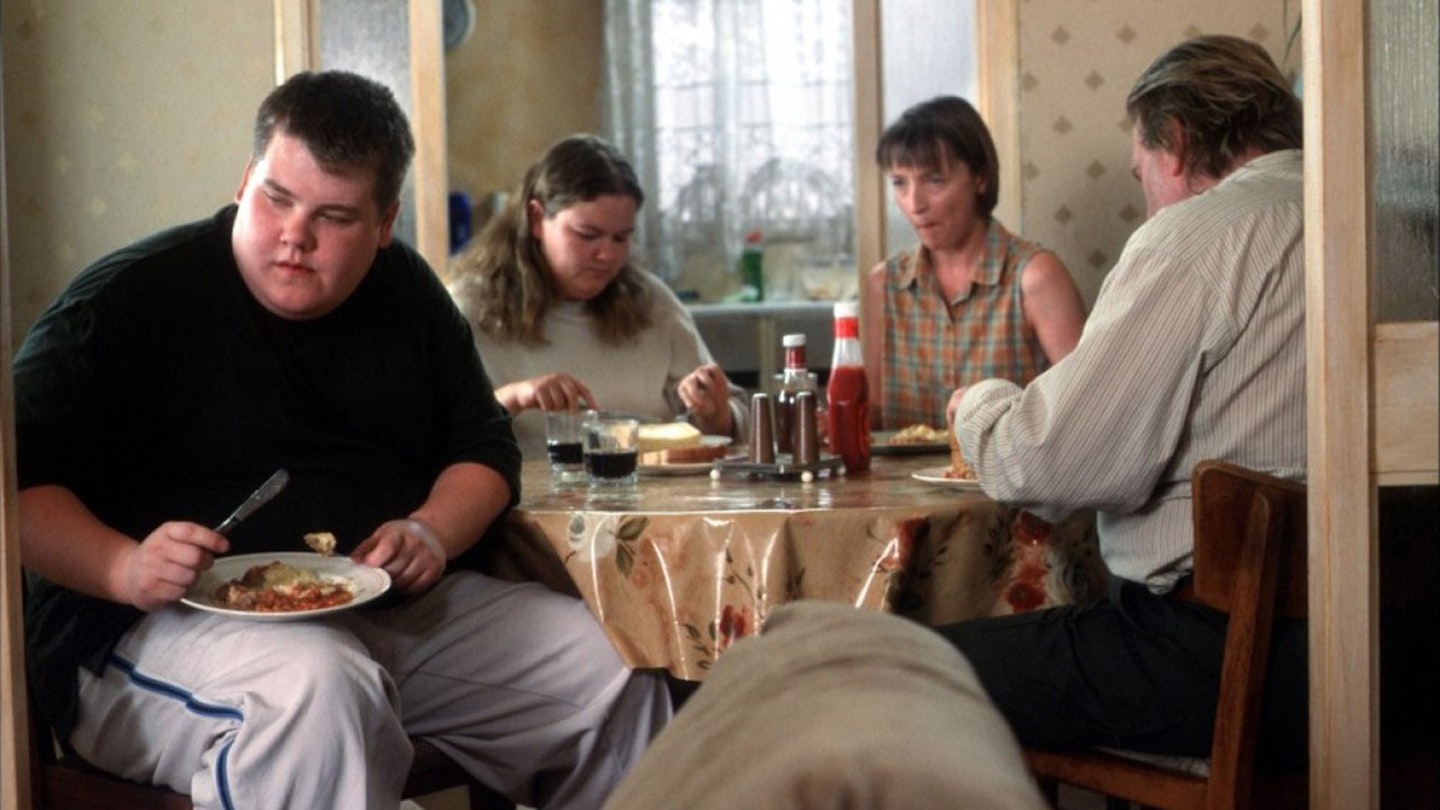Though Topsy-Turvy was undoubtedly excellent, the Gilbert & Sullivan period piece didn't feel very much like a "true" Mike Leigh film. It seems that the director himself was well aware of this, since this follow-up is a return to quintessential Leigh territory, showing a darkness that has been absent from his work since Naked in 1993.
In contrast to the musical jollity of Topsy-Turvy and the more mainstream and upbeat nature of Career Girls, All Or Nothing deals with desperation and failure.
Phil can't make the grade as a cabbie, while everyone else in the film has a dead-end job or, in the case of Rory, refuses even to try and get one. These are people who have no hope of a brighter future and no chance of escape from the drudgery of their lives; yet the film still manages to finish on a brighter note without it seeming entirely false.
In Career Girls, Leigh had his knuckles rapped for relying on contrived, coincidental reunions of all the principal characters over the course of one weekend. However, it seems to be one of the rules of the Mike Leigh world - a place closely resembling contemporary Britain - that everything happens at the same time in life. This rule applies here too, but it's not so unrealistic as to be worthy of criticism.
Sadly, the same cannot exactly be said of the film's more minor characters, with too many of them - the alcoholic neighbour, the violent boyfriend, the local loony - feeling lazily drawn. After forgettable turns in recent Hollywood movies (Rock Star, Vanilla Sky), Timothy Spall, collaborating with Leigh for the fourth time, is back on top form as a man sleepwalking through life who suddenly wakes up to his true situation. However, it is newcomer Alison Garland and Ruth Sheen - who was so superb in Leigh's High Hopes - who really impress, both giving genuine, affecting and memorable performances.
